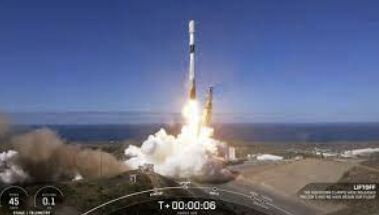South Korea Launches First Spy Satellite as Tensions Rise with North Korea
South Korea successfully launches its first military spy satellite, boosting defense against North Korea. Tensions rise as both countries violate UN resolutions and breach a previous military agreement. Allegations of Russian involvement surface.
South Korea has successfully launched its first military spy satellite, just over a week after North Korea claimed to have put its own spy satellite into orbit. The South Korean satellite was launched from California's Vandenberg Space Force Base using SpaceX's Falcon 9 rocket. This is the first of five spy satellites that South Korea plans to send into space by 2025 under a contract with SpaceX. The satellite launch comes as tensions between the two Koreas continue to rise. South Korea has previously relied on US spy satellites to monitor North Korea's movements.
🚨 ELON’S SPACEX LAUNCHES SOUTH KOREA'S FIRST SPY SATELLITE DAYS AFTER NORTH KOREA LAUNCHED THEIRS
— Mario Nawfal (@MarioNawfal) December 1, 2023
Remember the announcement by North Korea launching a satellite a few days ago, boasting about their ability to monitor the White House, as well as South Korean military targets?… pic.twitter.com/6WiG2OtvcQ
However, with the launch of its own spy satellites, South Korea's defense against its northern neighbor will be significantly boosted, especially when operated together with South Korea's three-axis system - preemptive strike, missile defense, and retaliatory assets. While North Korea claims to have successfully placed its own spy satellite into orbit, South Korean officials are still in the process of verifying its functionality. North Korea has stated that its satellite has already captured imagery of important US and South Korean military facilities, but no photos have been released yet. Experts remain skeptical about the satellite's capabilities for high-resolution imagery and proper military reconnaissance.
The launch of spy satellites by both Koreas has led to condemnations from the US and South Korea, as several UN Security Council resolutions prohibit satellite launches by North Korea due to concerns over its long-range missile testing. In response, North Korea has defended its sovereign right to launch spy satellites as a response to increasing US hostilities and has threatened to launch additional ones. These satellite launches have further fueled animosities between the rival Koreas and have caused both nations to take steps to breach a previous military agreement aimed at reducing frontline tensions.
South Korea and the US have increased their military training and have enhanced the visibility of US strategic assets in the Korean Peninsula, including aircraft carriers, nuclear-capable bombers, and a nuclear-armed submarine. South Korea's spy agency has informed lawmakers that Russia likely provided technological assistance to North Korea for its satellite launch. South Korea, the US, and Japan have accused North Korea of seeking high-tech Russian technologies in exchange for conventional arms to support Russia's war in Ukraine. Both Russia and North Korea have denied these allegations.




